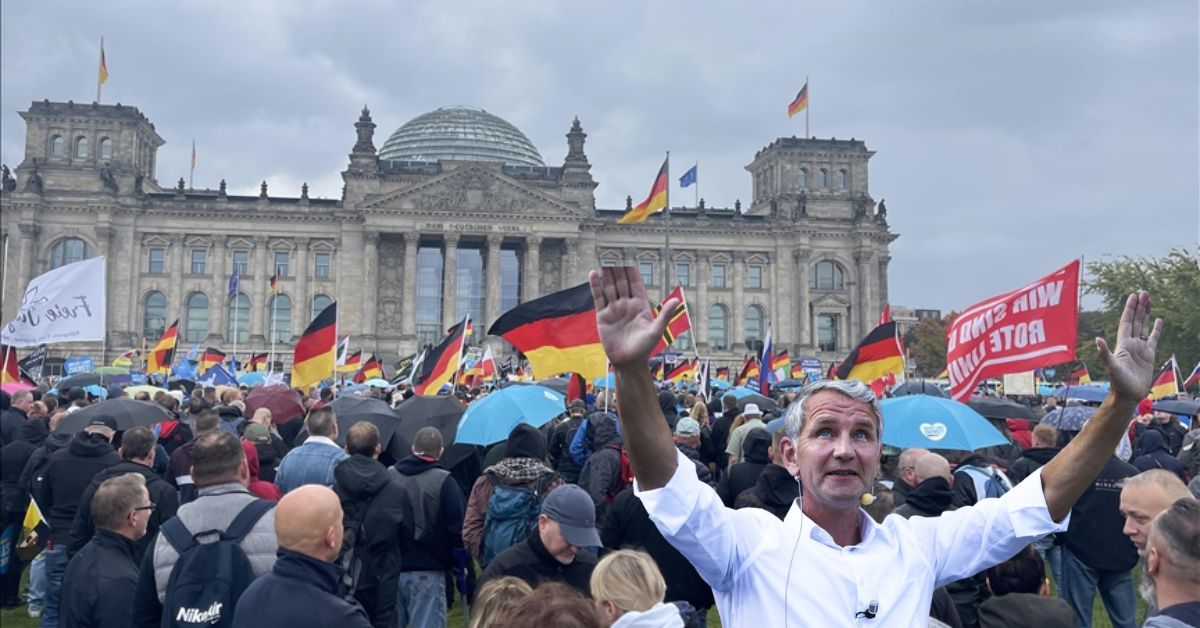Electoral Gains Germany– Germany’s political landscape is undergoing rapid transformation. In recent years, voter dissatisfaction with traditional parties has fueled growing support for far-right movements across the country. Nowhere is this more evident than in North Rhine-Westphalia (NRW), Germany’s most populous state, where upcoming elections could mark historic electoral gains Germany has not witnessed since reunification.
Analysts, policymakers, and citizens alike are paying close attention because the ripple effects of such a shift might extend far beyond regional politics—reshaping national debates over migration, the economy, and the nation’s position in Europe.
In this article, we explore why the far-right surge matters, what factors are driving it, and what challenges and risks lie ahead.
Understanding Electoral Gains Germany Current Context
“Electoral gains Germany” is not just a phrase—it represents measurable changes in how voters align themselves politically. In a proportional representation system like Germany’s, even a modest percentage swing can dramatically alter coalition-building and government policy.
Several factors are fueling recent political shifts:
- Economic Anxiety: Inflation, rising energy costs, and industrial challenges.
- Migration Concerns: Public debate around asylum and integration policies.
- Cultural Identity: Frustrations regarding globalization and EU integration.
- Distrust of Institutions: Declining faith in mainstream parties’ credibility.
Table: Key Dynamics Driving Electoral Shifts in NRW
| Driver | Impact on Voter Behavior | Key Beneficiaries |
|---|---|---|
| Economic uncertainties | Pushes voters toward populist parties | Far-right & protest movements |
| Migration pressures | Heightens debates over identity | Right-wing groups |
| Urban–rural divide | Reflects divergent priorities | Alternative regional parties |
| Declining trust | Weakens centrist coalitions | Populists & fringe groups |
North Rhine-Westphalia: Why This State Matters
North Rhine-Westphalia (NRW) is home to nearly 18 million people—making it the largest state by population in Germany. Whoever gains momentum here has leverage over national politics. NRW has long been a political bellwether:
- Historically dominated by Social Democrats (SPD).
- Shifted toward Christian Democrats (CDU) and centrist coalitions.
- Now witnessing rising strength of Alternative für Deutschland (AfD) and other far-right contenders.
The fact that NRW is Germany’s industrial heartland, housing global corporations and diverse immigrant communities, makes the potential far-right surge especially consequential.
Factors Behind the Far-Right’s Rise
The anticipated Electoral Gains Germany could witness emerge from multiple interlinked conditions:
1. Economic Struggles in Industrial Regions
Energy-intensive industries and coal transitions have left many workers uncertain about the future. Job losses and insecurity make populist promises attractive.
2. Migration and Integration Debates
While NRW has long been an immigrant hub, recent spikes in asylum applications have intensified political discourse. Right-leaning parties capitalize on concerns over cultural cohesion and social strain.
3. Urban–Rural Divide in Political Preferences
Cities like Cologne and Düsseldorf skew progressive, while rural areas lean conservative, creating fertile ground for populists who claim to represent “the forgotten middle.”
4. Distrust of Political Elites
Voter perception that mainstream parties neglect grassroots concerns has strengthened outsider appeal. This mirrors broader European trends across France, Italy, and Austria.
Electoral Gains Germany: Implications for National Politics
Should far-right groups achieve significant victories, repercussions will reverberate across Germany.
Coalition Instability
Germany’s proportional system necessitates coalitions. An emboldened right can fracture alliances, forcing uneasy partnerships or early elections.
Policy Shift on Migration & Security
Mainstream parties may harden their stance on migration to counter far-right advances. Debates on law enforcement, border security, and integration would intensify.
Rising European Tensions
Germany forms the backbone of the European Union. Major domestic political shifts could:
- Spark friction with Brussels over migration quotas.
- Complicate responses to geopolitical crises (e.g., Ukraine conflict).
- Influence economic policy coordination in the Eurozone.
Voter Behavior and Emerging Trends
Voter psychology is central to interpreting electoral gains Germany may soon experience. Trends suggest:
- Younger voters lean toward environmental and progressive parties, though frustration with economic challenges makes some susceptible to populist rhetoric.
- Middle-class workers face squeezed wages and rising costs, increasing support for alternatives outside the political mainstream.
- Older voters, historically loyal to CDU or SPD, are increasingly fragmented as pensions and economic stability dominate their concerns.
Comparison with Broader European Trends
Germany’s case isn’t unique. Across the continent:
- France: Marine Le Pen’s “National Rally” capitalizes on frustration with Macron’s centrism.
- Italy: Giorgia Meloni’s Brothers of Italy rose from fringe to government.
- Sweden & Hungary: Populist parties have reshaped traditional party lines.
These examples suggest Germany is part of a wider realignment—where discontent transforms into political breakthroughs for populist-right movements.
Media’s Role in Shaping Perceptions
Media coverage strongly influences the trajectory of electoral gains Germany could experience:
- Mainstream outlets warn against extremism, yet risk alienating those who feel ignored.
- Alternative media channels amplify far-right narratives through sensationalism.
- Social media platforms enable direct engagement with disenchanted citizens, bypassing traditional gatekeepers.
This dual influence creates polarized dialogue, complicating efforts to maintain balanced debate.
What Lies Ahead for Germany’s Political Landscape?
Electoral Gains Germany outcome in NRW may trigger a domino effect across federal and European elections. Whether these electoral gains translate to lasting policymaking power depends on several conditions:
- Sustainability of support—Will voter momentum persist or fade after protest votes?
- Mainstream party response—Will SPD, CDU, and Greens adapt their policies?
- Institutional resilience—Can Germany’s democratic norms absorb and counter extremism?
Conclusion: Germany at a Political Crossroads
The possibility of significant electoral gains Germany could see in its most populous state signals a pivotal moment. As far-right groups strengthen their grip on voter bases, mainstream parties face an urgent challenge: adapt or risk irrelevance.
Ultimately, the story unfolding in North Rhine-Westphalia isn’t only about one election. It reflects deeper currents reshaping global politics—where disillusionment, economic insecurity, and cultural debates redefine the meaning of representation.
Germany stands at a crossroads, and the decisions taken in the coming years will determine whether its democracy grows stronger from these pressures—or fractures under them.
